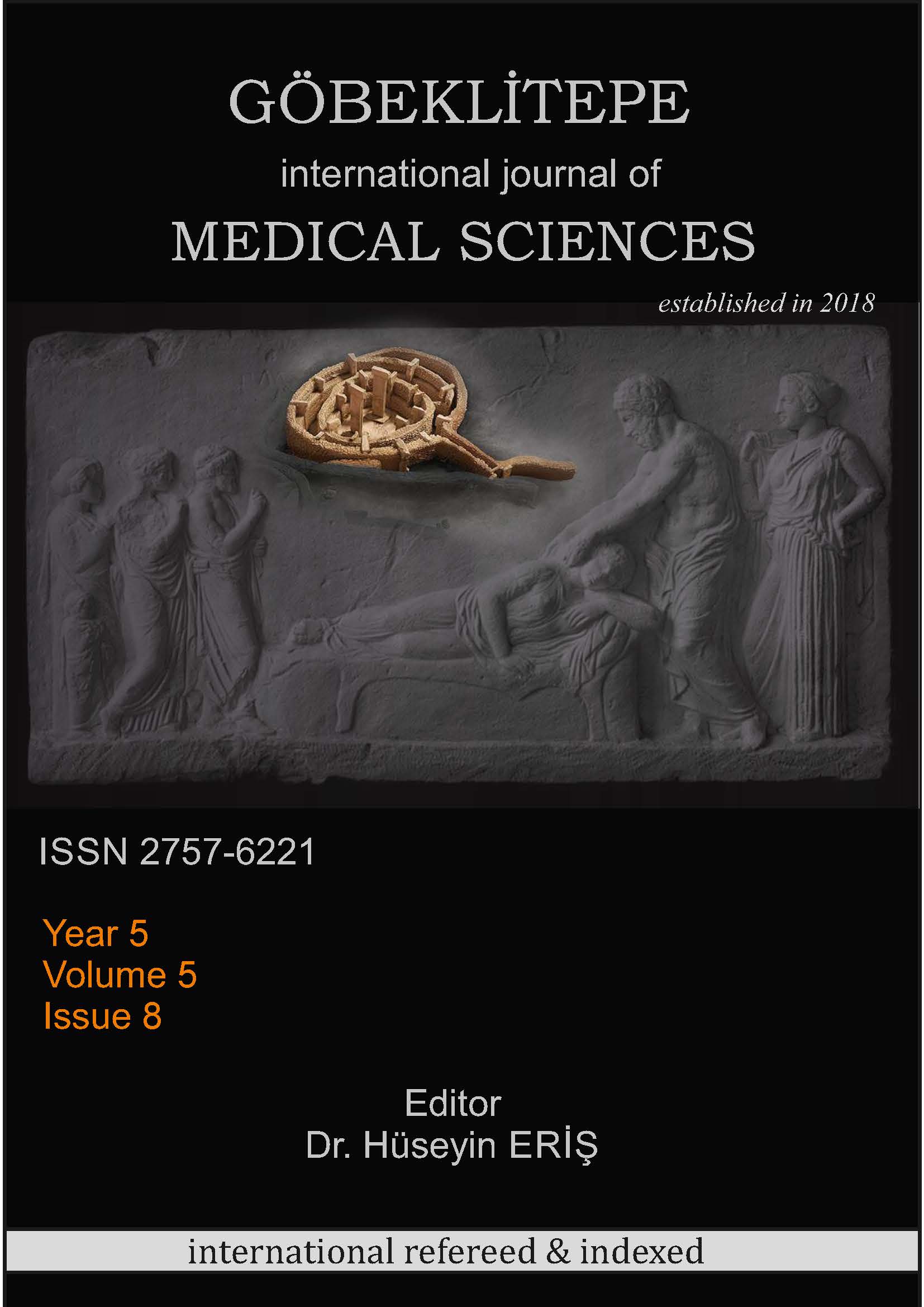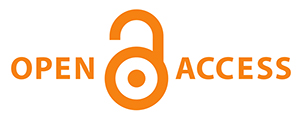THE IMPACT OF ETHICAL LEADERSHIP IN ORGANIZATIONS ON PERCEIVED STRESS AND JOB PERFORMANCE
DOI:
https://doi.org/10.55433/gsbd.206.Keywords:
Ethical leadership, perceived stress, job performance, organizational managementAbstract
This study aimed to examine the impact of ethical leadership on perceived stress and job performance as per the literature. Ethical leaders' attitudes and behaviours in accordance with ethical principles and values have an impact on employee performance and perceived stress. In other words, employees in organizations led by managers who show ethical leadership have higher job performance and lower stress perceptions. In this respect, organizational productivity and employee satisfaction are observed to be high. To achieve this positive impact of ethical leaders on organizational productivity and employee satisfaction, organizations that want to bring service quality to the fore want to work with leaders who have ethical leadership characteristics. Taking into account the wishes and expectations of the members of the organization they work with, ethical leaders can be effective in creating an effective and productive working environment for the members of the organization. Ethical leaders, who make ethical decisions and act proactively as per universal principles in order to increase organizational efficiency, enable employees to work with higher performance. In conclusion, ethical leadership education should be included in the education of managers and they should be motivated to show ethical behaviour by using various incentives.
References
Dinç, Y. ve Cengiz, S. (2014). Muhasebe Denetiminde Hata Ve Hilenin Denetçi Etiği Açısından İncelenmesi: Enron Skandalı Örneği. Çankırı Karatekin Üniversitesi Sosyal Bilimler Enstitüsü Dergisi, Cilt 5, Sayı 1, 221-236.
Yukl, G. (2002). Leadership in organization. 8th ed., New Jersey: Prentince Hall University of Albany State University of New York, 48-50.
Zhu, W., May, D.R. ve Avolio, B.J. (2004). The Impact Of Ethical Leadership Behavior On Employee Outcomes: The Roles Of Psychological Empowerment And Authentcity. Journal of Leadership and Organizational Studies, Cilt 11, Sayı 1, 16-26. doi: 10.1177/107179190401100104.
Karahan, A. (2008). Hastanelerde Liderlik Ve Örgütsel Bağlılık Arasındaki İlişkinin İncelenmesi. Afyonkarahisar Üniversitesi Sosyal Bilimler Dergisi, Cilt 10, Sayı 1, 145-162.
Schwepker, C.H. ve Dimitriou, C.K. (2021). Using Ethical Leadership To Reduce Job Stress And Improve Performance Quality In The Hospitality Industry. International Journal of Hospitality Management, Cilt 94, Sayı 0, 1-11. doi: 10.1016/j.ijhm.2021.102860.
Yılmaz, E. The Analysis Of Organizational Creativity In Schools Regarding Principals’ Ethical Leadership Characteristics. Procedia Social and Behavioral Sciences, Cilt 2, Sayı 2, 3949-3953. doi: 10.1016/j.sbspro.2010.03.622.
Riggio, R.E. (2018). What’s wrong with leadership? Improving leadership research and practice. Routledge: 226-238.
Hunt, S.D., Wood, V.R. ve Chonko, L.B. (1989). Corporate Ethical Values And Organizational Commitment In Marketing. Journal of Marketing, Cilt 53, Sayı 3, 79-90. doi: 10.1177/002224298905300309.
Bennis, W.G. (1992). Managing The Dream: Leadership In The 21st Century. The Management of Human Resources: Selected Readings, Cilt 30, Sayı 6, 166-168. doi: 10.1108/eum0000000000113.
Plinio, A.J. (2009). Ethics And Leadership. International Journal Of Disclosure And Governance, Cilt 6, Sayı 4, 277-283.
Duran, C., Boz, D., Behdioğlu, S. ve Aktı, Ü. (2004). Vicdani liderlik insanlığa insanlığın sesi. Ankara: Gazi Kitabevi, 73-76.
Selye, H. (1956). The stress of life. America: Published By The McGraw-Hill Book Company Printed In The United States of America, 4-14.
Selye, H. (1936). A Syndrome Produced By Diverse Nocuous Agents. Nature, Cilt 138, Sayı 347, 32. doi: 10.1038/138032a0.
Aksoy, A. ve Kutluca, F. (2010). Çalışma Hayatında Stres Kaynakları, Stres Belirtileri Ve Stres Sonuçlarının İncelenmesi Üzerine Bir Araştırma. In Journal of Social Policy Conferences, Cilt 0, Sayı 49, 458-486.
Sonnentag, S. ve Frese, M. (2002). Performance Concepts And Performance Theory. Psychological Management of Individual Performance, 1-25. doi: 10.1002/0470013419.ch1.
Smith, P.C. ve Goddard, M. (2002). Performance Management And Operational Research: A Marriage Made In Heaven?. The Journal Of The Operational Research Society, Cilt 53, Sayı 3, 247-255. doi: 10.1057/palgrave.jors.2601279.
Örücü, E. ve Kanbur, A. (2008). Örgütsel Yönetsel Motivasyon Faktörlerinin Çalışanların Performans Ve Verimliliğine Etkilerini İncelemeye Yönelik Ampirik Bir Çalışma: Hizmet ve Endüstri İşletmesi Örneği. Yönetim ve Ekonomi Dergisi, Cilt 15, Sayı 1, 85-97.
Haque, A. ve Yamoah, F.A. (2021). The Role Of Ethical Leadership In Managing Occupational Stress To Promote Innovative Work Behaviour: A Cross-Cultural Management Perspective. Sustainability, Cilt 13, Sayı 17, 9608.
Lantican, C.A.O. (2020). The Influence Of Ethical Leadership On Employees’ Work-Related Stress And Organizational Commitment: Evidence From A Developing Country. Journal of Economics, Management & Agricultural Development, Cilt 6, Sayı 1, 16-31.
Alimo Metcalfe, B., Alban Metcalfe, J., Bradley, M., Mariathasan, J. ve Samele, C. (2008). The Impact Of Engaging Leadership On Performance, Attitudes To Work And Wellbeing At Work. Journal of Health Organization and Management, Cilt 22, Sayı 6, 586-598. doi: 10.1108/1477726081.
Zhou, H., Jin, M. ve Ma, Q. (2015). Remedy For Work Stress: The Impact And Mechanism Of Ethical Leadership. Cent. Eur. J. Public Health, Cilt 23, Sayı 2, 176-180.
Gill, A., Flaschner, A.B. ve Bhutani, S. (2010). The Impact Of Transformational Leadership And Empowerment On Employee Job Stress. Bus. Econ. J., Cilt 1, Sayı 1, 1-11.
Goswami, I. ve Dsilva, N.R. (2019). Impact Of Job Satisfaction And Job Stress On Employees’ Life In Mumbai’s Hospitality Sector. Journal of Strategy and Management, Cilt 12, Sayı 3, 330-346. doi: 10.1108/JSMA-01-2019-0012.
Kim, M. ve Kim, B. (2020). The Performance Implications Of Job Insecurity: The Sequential Mediating Effect Of Job Stress And Organizational Commitment And The Buffering Role Of Ethical Leadership. International Journal of Environmental Research and Public Health, Cilt 17, Sayı 21, doi: 10.3390/ijerph17217837.
Erkutlu, H.V. ve Chafra, J. (2006). Relationship Between Leadership Power Bases And Job Stress Of Subordinates: Example From Boutique Hotels. Management Research News, Cilt 29, Sayı 5, 285-297. doi: 10.1108/01409170610674419.
Elçi, M., Şener, İ., Aksoy, S. ve Alpkan, L. (2012). The Impact Of Ethical Leadership And Leadership Effectiveness One The Mediating Role Of Work Related Stress. Procedia-Social And Behavioral Sciences, Cilt 58, Sayı 0, 289-297. doi: 10.1016/j.sbspro.2012.09.1003.
Bedi, A., Alpaslan, C.M. ve Green, S. (2015). A Meta-Analytic Review Of Ethical Leadership Outcomees And Moderators. J. Bus. Ethics, Cilt 139, Sayı 3, 517-536. doi: 10.1007/s10551-015-2625-1.
Bello, S.M. (2012). Impact Of Ethical Leadership On Employee Job Performance. International Journal of Business and Social Science, Cilt 3, Sayı 11, 228-236.
Brown, M.E., Trevino, L.K. ve Harrison, D.A. (2005). Ethical Leadership: A Social Learning Perspective For Construct Development and Testing. Organizational Behavior and Human Decision Processes, Cilt 97, Sayı 2, 117-134. doi: 10.1016/j.obhdp.2005.03.002.
Walumbwa, F.O., Mayer, D.M., Wang, P., Wang, H., Workman, K. ve Christensen, A.L. (2011). Linking Ethical Leadership To Employee Performance: The Roles Of Leader-Member Exchange, Self-Efficacy And Organizational Identification. Organizational Behavior and Human Decision Process, Cilt 115, Sayı 2, 204-213. doi: 10.1016/j.obhdp.2010.11.002.
Gils, S.V., Quaquebeke, N.V., Knippenberg, D.V., Dijke, M.V. ve Cremer, D.D. (2015). Ethical Leadership And Follower Organizational Deviance: The Moderating Role Of Follower Moral Attentiveness. The Leadership Quarterly, Cilt 26, Sayı 0, 190-203.
Kalshoven, K., Den Hartog, D.N. ve De Hoogh, A.H.B. (2011). Ethical Leadership At Work Questionnaire (ELW): Development And Validation Of A Multidimensional Measure. The Leadership Quarterly, Cilt 22, Sayı 0, 51-69. doi: 10.1016/j.leaqua.2010.12.007.
Aksoy, S. (2013). Etik Liderin Ve Etik İklimin İş Performansına Etkisi: İlaç Mümessilleri Üzerinde Yapılan Bir Araştırma. Kafkas Üniversitesi İktisadi ve İdari Bilimler Fakültesi, 18. Ulusal Pazarlama Kongresi Bildiri Kitabı, Kars, 91-103.
Obicci, P.A. (2015). Effects Of Ethical Leadership On Employee Performance In Uganda. Net Journal of Business Management, Cilt 3, Sayı 1, 1-12.
Ayan, A. (2015). Etik Liderlik Tarzının İş Performansı, İçsel Motivasyon Ve Duyarsızlaşma Üzerine Etkisi: Kamu Kuruluşunda Bir Uygulama. Eskişehir Osmangazi Üniversitesi İİBF Dergisi, Cilt 10, Sayı 3, 117-141.
Kelidbari, H.R.R., Fadaei, M. ve Ebrahimi, P. (2016). The Role Of Ethical Leadership On Employee Performance In Guilan University Of Medical Sciences. Social and Behavioral Sciences, Cilt 230, Sayı 0, 463-470. doi: 10.1016/j.sbspro.2016.09.058.
Bıyık, Y., Şimşek, T. ve Erden P. (2017). Etik Liderliğin Çalışanların İş Performansı Ve İş Tatminine Etkisi. Gazi İktisat ve İşletme Dergisi, Cilt 3, Sayı 1, 59-70.
Yasan, B., Doğan, S. ve Mengi, B.T. (2019). Etik Liderlik Ve Etik İklimin İç Denetçilerin Performansına Etkisi Ve Bir Araştırma. TİDE Academia Research, Cilt 2, Sayı 0, 249-280.
Büyükbeşe, T. ve Gündoğdu, H. (2021). Örgütsel Adaletin Bağlamsal Performans Üzerine Etkisinde Etik Liderliğin Aracı Rolü. Kahramanmaraş Sütçü İmam Üniversitesi Sosyal Bilimler Dergisi, Cilt 18, Sayı 2, 1080-1101. doi: 10.33437/ksusbd.932711.
Joplin, T., Greenbaum, R.L., Wallace, J.C. ve Edwards, B.D. (2019). Employee Entitlement, Engagement, And Performance: The Moderating Efect Of Ethical Leadership. Journal of Business Ethics, Cilt 168, Sayı 0, 813-826. doi: 10.1007/s10551-019-04246-0.
Brown, M.E. ve Trevino, L.K. (2006). Ethical Leadership: A Review And Future Directions. The Leadership Quarterly, Cilt 17, Sayı 6, 595-616. doi: 10.1016/j.leaqua.2006.10.004.
Piccolo, R.F., Greenbaum, R., Hartog, D.N. ve Folger, R. (2010). The Relationship Between Ethical Leadership And Core Job Characteristics. Journal of Organizational Behavior, Cilt 31, Sayı 2-3, 259-278. doi: 10.1002/job.627.
Walumbwa, F.O. ve Schaubroeck, J. (2009). Leader Personality Traits And Employee Voice Behavior: Mediating Roles Of Ethical Leadership And Work Group Psychological Safety. Journal of Applied Psychology, Cilt 94, Sayı 5, 1275-1286. doi: 10.1037/a0015848.





